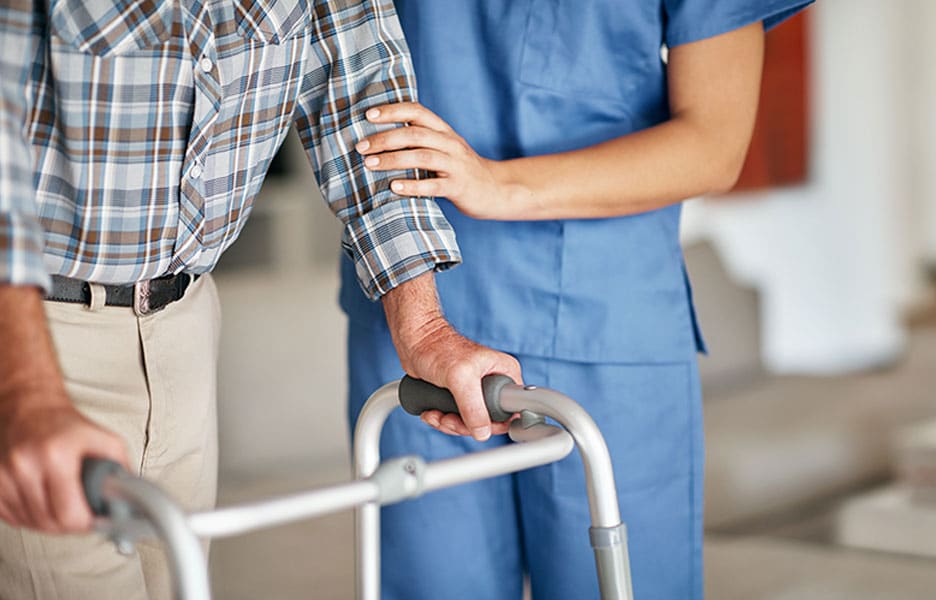
Services
In 2018 alone, approximately 36 million falls were reported among seniors. More than eight million of those reported falls required medical attention or limited activity for at least one day. These numbers don’t account for unreported falls, which could increase those numbers. At first consideration, it may not seem that serious to some but to those familiar with senior care and geriatric health the reality of a fall can be totally different.
As young children learning to walk and navigate the world, develop our gross motor skills and coordination, falls are common typically non-incidental. However, as we age falls have the potential to become much more serious. In fact, falls are the leading cause of fatal and non-fatal injuries for older Americans. Sometimes these falls can even lead to death.
Sadly, many seniors and their loved ones do not consider fall prevention to be of significance until after an event has occurred. How can home care play a part in preventing falls? You would be surprised. Personal care, or time spent showering or bathing is a major area of concern for adults with mobility or balance issues. Often just having someone ready to standby to assist can make the difference between avoidance and disaster.
For many seniors the thought of having someone lend a steady hand while they shower or place a steading arm under their elbow as they navigate a sidewalk incline, seems threatening to their independence. Professional caregivers understand those sentiments and can empathize. However, we imagine it would much more limiting to be tied to a walker, rehab bed or worse because of a fall.
Do you need assistance with fall prevention?
After a fall many of our senior loved ones experience periods of isolation while they recover. Some may even have to cease doing things they love, like golfing or other physical activity. Still, some are exposed to hazardous conditions beyond the fall like recovering in an acute care setting, which puts them at risk for exposure to other diseases.
If you are concerned for yourself or a loved one please contact our office today to explore how a professional caregiver referral can help make the difference. For care in Southeast Florida: 772-220-6005, in Southwest Florida: 239-690-9969, or in Central Florida: 321-541-1248.
